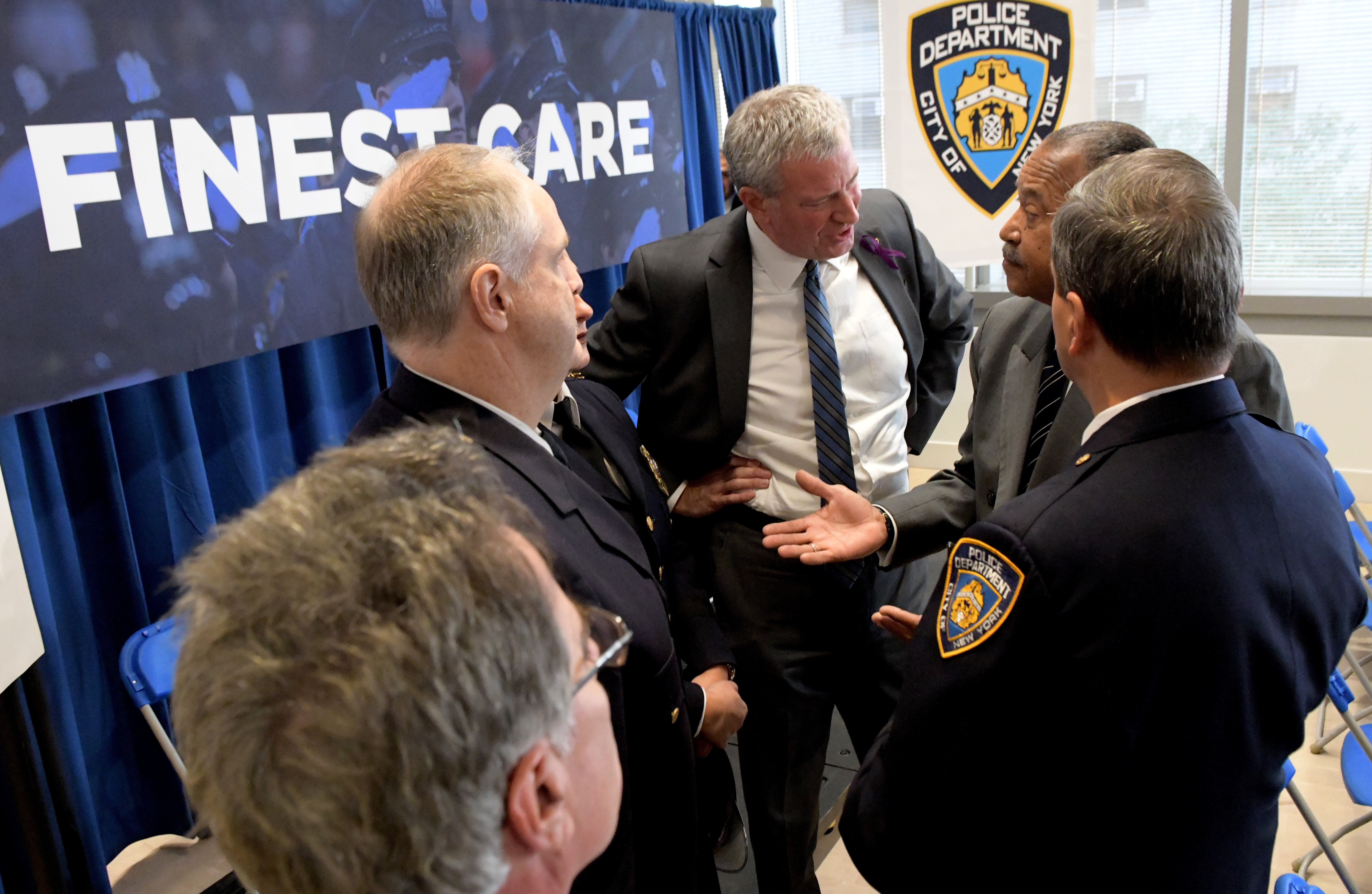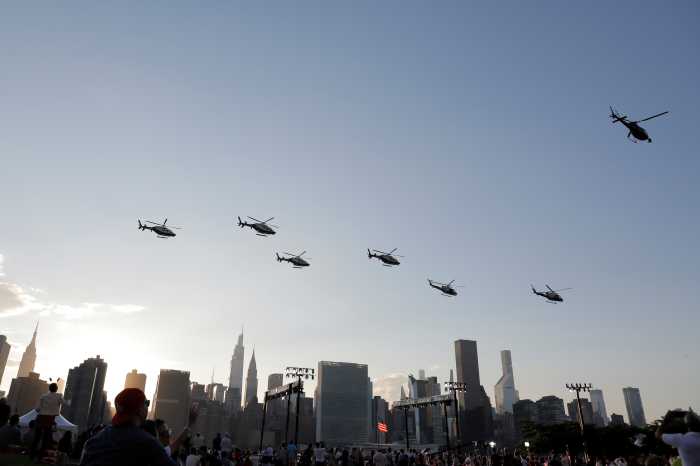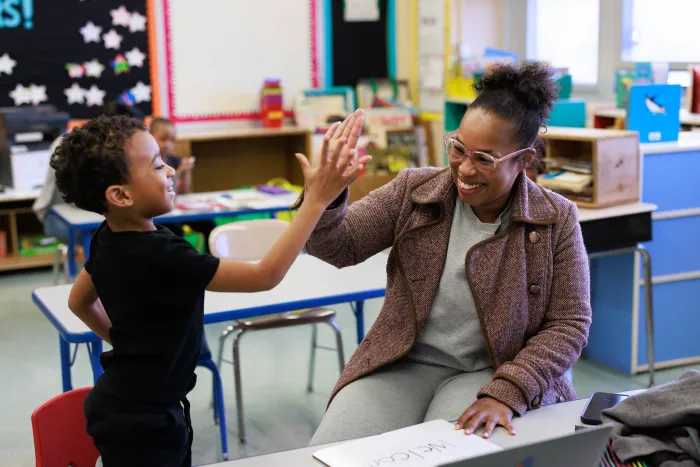In the wake of an epidemic of suicides among NYPD officers this past year, a Manhattan hospital will now provide free confidential counseling and medication to New York’s finest completely detached from the department, it was announced Thursday.
The new program, “Finest Care,” will be offered free to all NYPD officers who need counseling and mental health services that could lead to suicidal thoughts and anything else that might endanger the officer or those around them.
NewYork-Presbyterian Weill Cornell Medical Center is offering the program at a cost of $1.2 million for the first 18 months of the program, Mayor Bill de Blasio announced during his Oct. 24 visit to the hospital’s Upper East Side campus. An additional $150,000 was provided by the Police Foundation in support of the program.
Ten police officers have taken their own lives this past year, the highest number in NYPD history. Officials say it is following a trend in departments around the country that are experiencing similar tragedies.
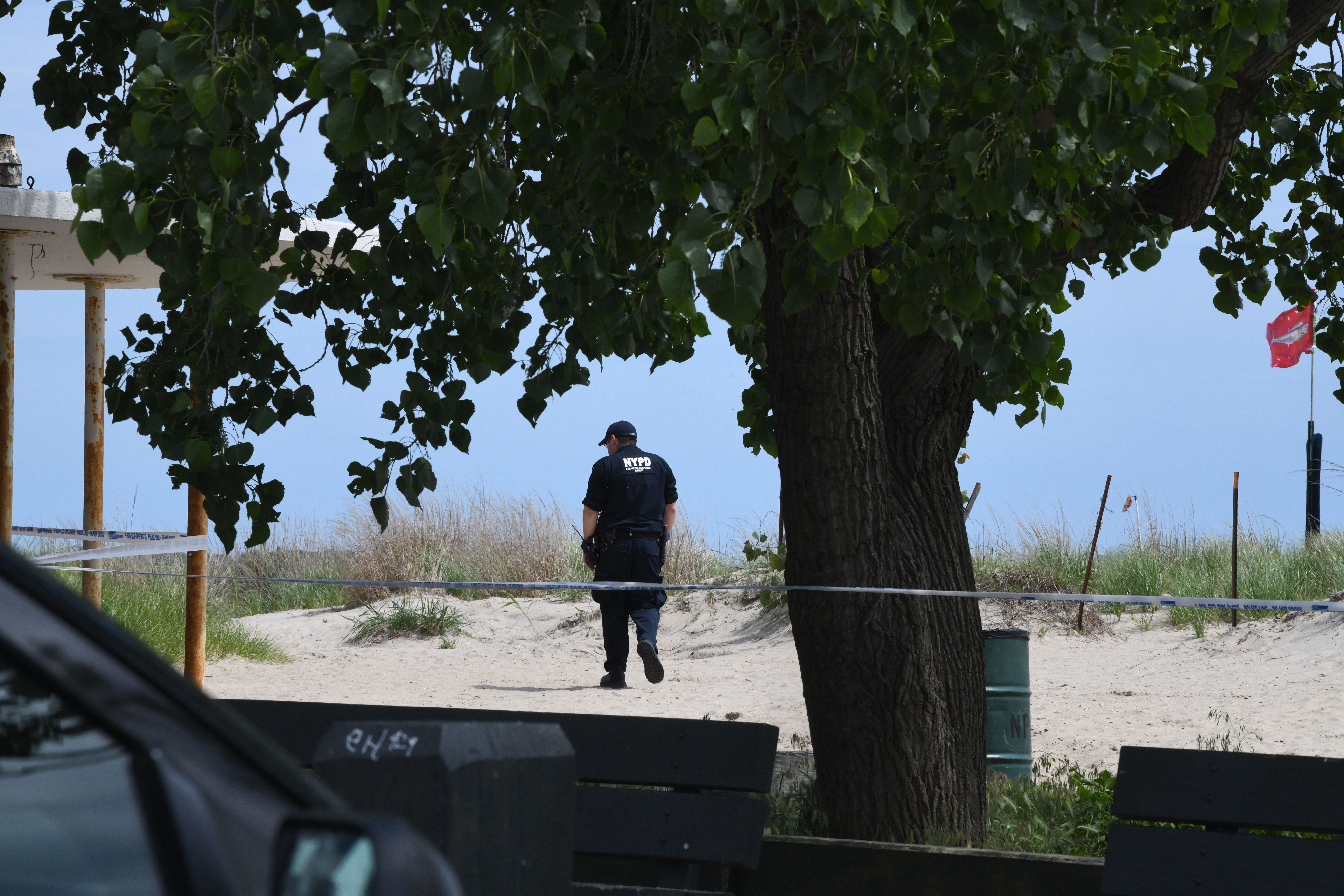
De Blasio said his own father committed suicide when he was a teen.
“When I was 18-year-old, my dad took his own life. He was a World War II hero and was so used to helping others that he found it difficult to accept for himself,” de Blasio said. “Too many members of the NYPD family have had to watch their colleagues and loved ones succumb to mental health struggles. We are launching a new partnership with NewYork-Presbyterian to eradicate stigma and get our officers the help they need.”
The mayor was accompanied by Deputy Commissioner Benjamin Tucker and several commanders, in addition to doctors from the hospital who will be administering the program with 25 mental health professionals 24 hours a day, seven days a week with a hotline for NYPD officers starting on October 28.
The program would be in addition to programs already in place that service police officers including the NYPD medical office, Police Organization Providing Peer Assistance (POPPPA) an independent group of volunteers and professional offering support to officer and retirees; the chaplain’s unit which provides pastorial support completely confidential; and the employee assistance unit that provides counseling services 24 hours a day, seven days a week.
The difference here is that the hospital will be providing services at no cost to the officer or someone with a connection to the department.
Dr. Steven Corwin, president and CEO of NY-Presbyterian recognized that police officers have been reluctant to seek out help with emotional and mental issues, but he said the new service will allow officers to get help “completely confidential.”
This would mean the officers who get mental health assistance would not lose their badge or gun, and the department would not be notified unless someone is a clear danger to themselves or others.
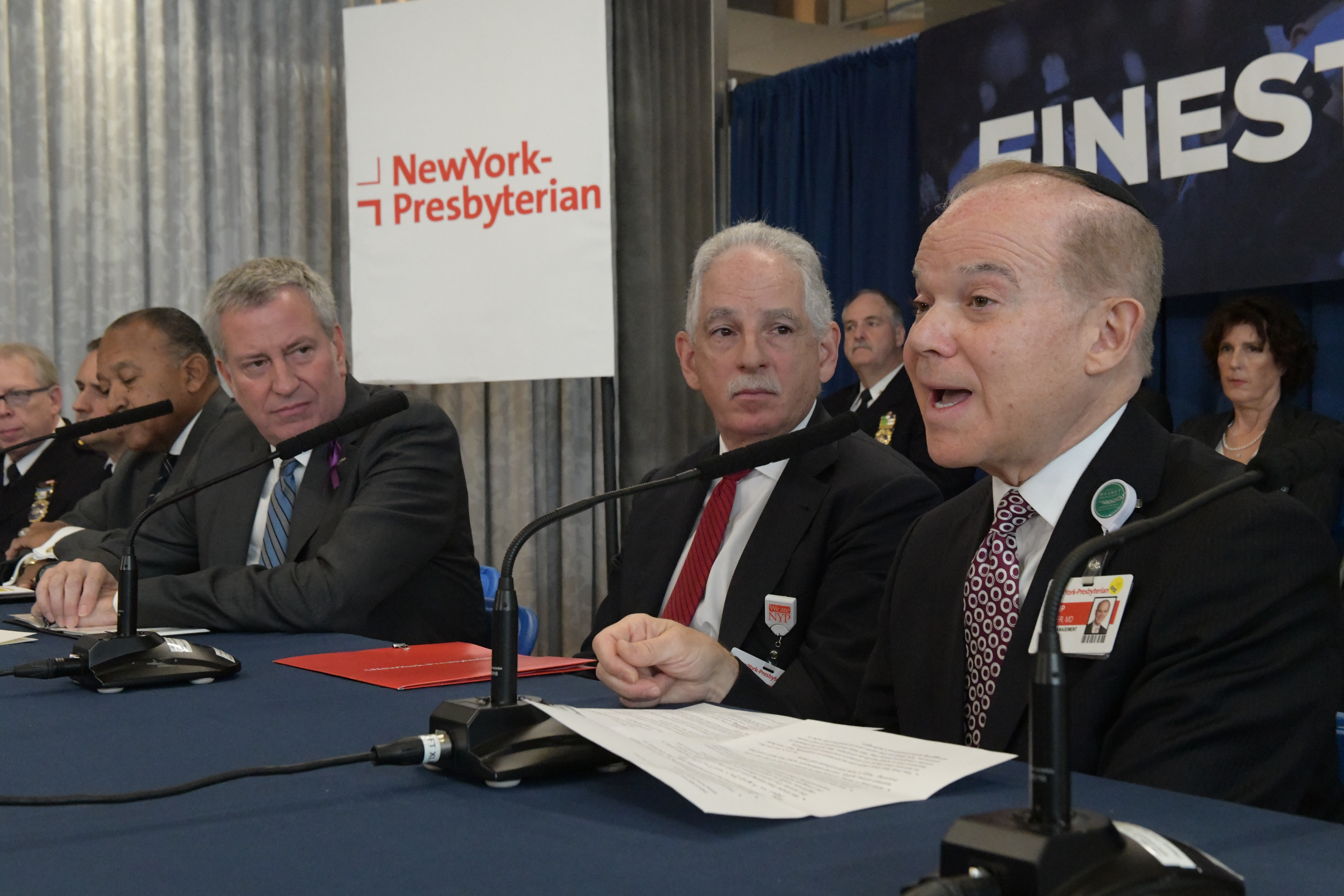
The mayor said they did not know that they needed “other tools” to put to work on the problem “but we know it now.”
Taking away a gun or a badge is a big issue for most officers. Officials report that in 2018, 1200 uniform offices received some sort of mental health services, and of those, 300 cases required follow up, and of those, 100 had firearms removed because the severity of the situation. They added that of the 100, 80 percent had their firearms returned.
“The vast number of situations officers face like all of us, don’t rise to the level of the discussion of taking away a gun or badge,” de Blasio said. “We are beseeching not to misrepresent this that this is a matter of life and death – most people dealing with a challenge, whether personal life financial, stress in the family whatever it is, they just need someone to talk, they might need help figuring things out and get ongoing support.”
To get help, uniformed officers can call the hospital’s dedicated referral line and speak to a coordinator who will identify a provider for an appointment – located at 10 hospital outlets in the greater New York area. Coordinators are trained to speak with officers and identify whether a caller is in immediate need of help or looking to speak to a professional before it turns into a crisis.
PBA President Patrick J. Lynch issued a statement that said, “We are glad that the Mayor and the NYPD have finally realized that we need help from outside the Department to address the police mental health crisis. We have said repeatedly that our members need no-cost access to high-quality professional mental health care, and they need to be able to seek treatment without derailing their careers. The new partnership with NewYork-Presbyterian Hospital appears to be a step in the right direction.”
